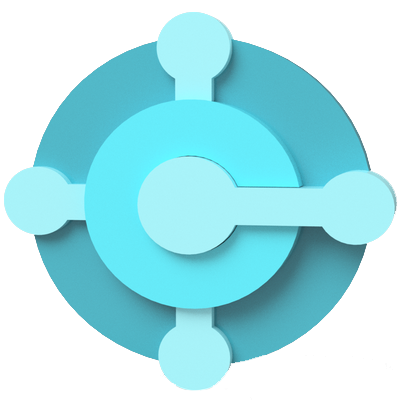
Why are businesses are moving to Microsoft Business Central?
As organisations strive for the utmost efficiency in their operations and wish to optimize their resource usage, enterprise resource planning – or ERP – solutions have become increasingly more sought after.
In the competitive landscape of enterprise resource planning (ERP) solutions, Dynamic 365 Business Central has firmly cemented itself as an agile, adaptable solution – especially for small-and-medium businesses (SMBs).
Businesses, in their droves, have been moving to Microsoft Business Central for their business and resource management needs.
What is Microsoft’s Dynamics 365 Business Central? Who is Business Central for? What are the benefits of using Business Central, especially over other similar ERP solutions?
In this article, we’ll explore the exciting world of Microsoft Business Central and discuss why Microsoft’s offering is the best ERP solution for your business.

What is Microsoft Business Central?
As previously mentioned, Dynamics 365 Business Central is one of Microsoft’s Enterprise Resource Planning (ERP) solutions. Business Central is designed primarily for SMBs to automate and streamline their critical business processes.
Business Central helps SMBs to manage all aspects of their business – including finance, manufacturing, sales, fulfilment, project management and much more. This tool works on the belief that small business owners should be able to use one platform to manage all the tasks they need to run their business.
We find Business Central to be an extremely versatile application – where organisations can easily add the functionality and features that are relevant to their operations. In fact, we couldn’t possibly cover everything Business Central can do in this article.
Here are some of the tasks Business Central can help your business achieve:
- Finance: Make and collect payments, prepare year-end statements, control your organisation’s cash flow and manage fixed assets.
- Purchasing: Sort and execute purchasing processes, handle purchasing invoices, and track orders, and supplier accounts.
- Project Management: Manage resources, budgets for projects, and help project managers monitor progress and employee hours.
- HR & Payroll: Track employee hours, and absences and store employee records.
- Sales & Relationship Management: Process incoming leads, manage sales communications and keep track of leads throughout the sales cycle.
Who is Business Central for?
Business Central is designed for small-to-medium businesses – as enterprises tend to use their own bespoke ERP solution. According to Enlyft, Dynamics 365 Business Central is most popular with companies with 10-50 employees and $1M-10M in revenue.
Smaller businesses need an ERP solution that connects their teams together and simplifies tasks. Unlike large firms, SMBs can’t hire full-time workers to handle one task – and so Business Central’s automation & data integration helps free up time for employees that wear many different hats.
For instance, Forrester found that Business Central’s functionality, visibility, and access improvements for finance and operations staff resulted in the avoidance of one full-time and one part-time finance and operations hire. Forrester believes this translates into a reduction in the need to hire by an average of 10%.
Business Central is most useful for those SMBs that are looking to integrate their workflows and bridge together parts of their organisation into one, central platform.
What are the benefits of Business Central?

Helps you scale faster
We find that before deploying Business Central, small businesses tend to manage their operations with a mismatch of software solutions that may not necessarily integrate as well as they should.
As these businesses looked to scale, these operations and finance programs were not providing the necessary functionality and adaptability needed to keep up with the pace of high-growth organisations.
Business Central future-proofs your operations. It automates and simplifies tasks that otherwise take too long for your small workforce, and the ability to deploy in the cloud allows you to scale your resources at a moment’s notice.

Bridges CRM & ERP Capabilities
Unlike other, purely operational, ERP solutions, Business Central includes some important features found in a Customer Relationship Management suite.
Modern markets are extremely competitive – especially for smaller firms – and so increasingly businesses rely on improving their customer experience (CX) to differentiate themselves from their competition.
Business Central includes great functionality in the sales and relationship management sphere. This includes managing sales opportunities and viewing recorded interactions with customers through Microsoft Outlook.
This tight control of the sales cycle and communications helps create a more seamless experience for your customers – allowing you to deliver better outcomes with connected service operations.

Improve Productivity
Forrester found that Business Central improves the flow of operations by an average of 8%. Business Central simplifies and automates difficult time-consuming tasks.
For instance, finance and operations professionals can – with Business Central – execute their daily responsibilities more easily. The improved workflows afforded by Business Central can help you recapture lost productivity.

Integrates well with Microsoft Products
Microsoft has in Business Central created a product that is laser-focused on data integration. Firstly, Business Central integrates well with other parts of the Dynamics 365 suite such as Sales & Service.
Business Central can also empower your current Microsoft products such as Office tools like Word & Excel.
Getting Started with Business Central
Setting up Business Central and ensuring all your company’s information and data have been correctly migrated can be difficult. That’s why we recommend working with a Microsoft Service Provider to get started with your Business Central suite.
Want to make the switch to Business Central? Get in touch with us today and see how we can help!
